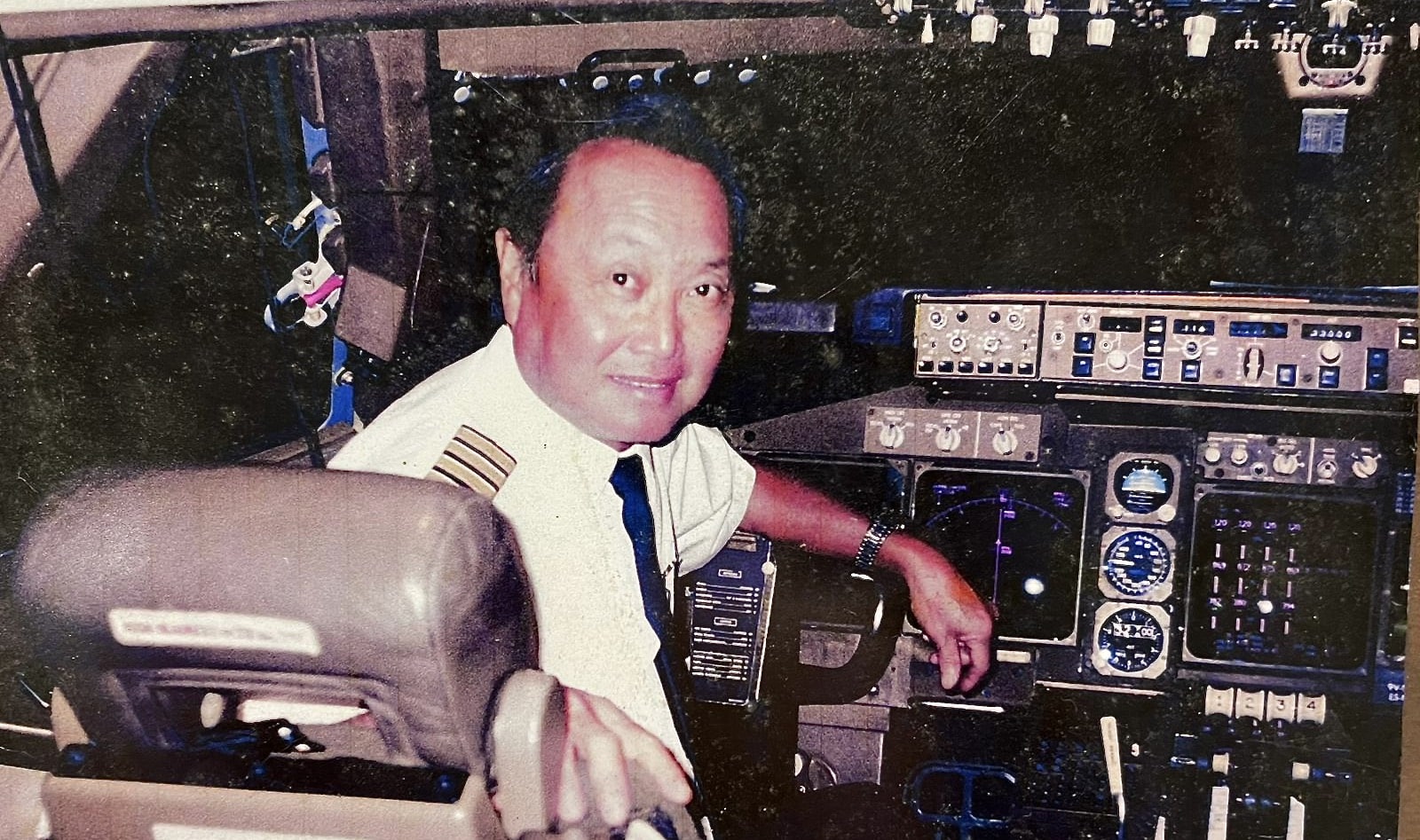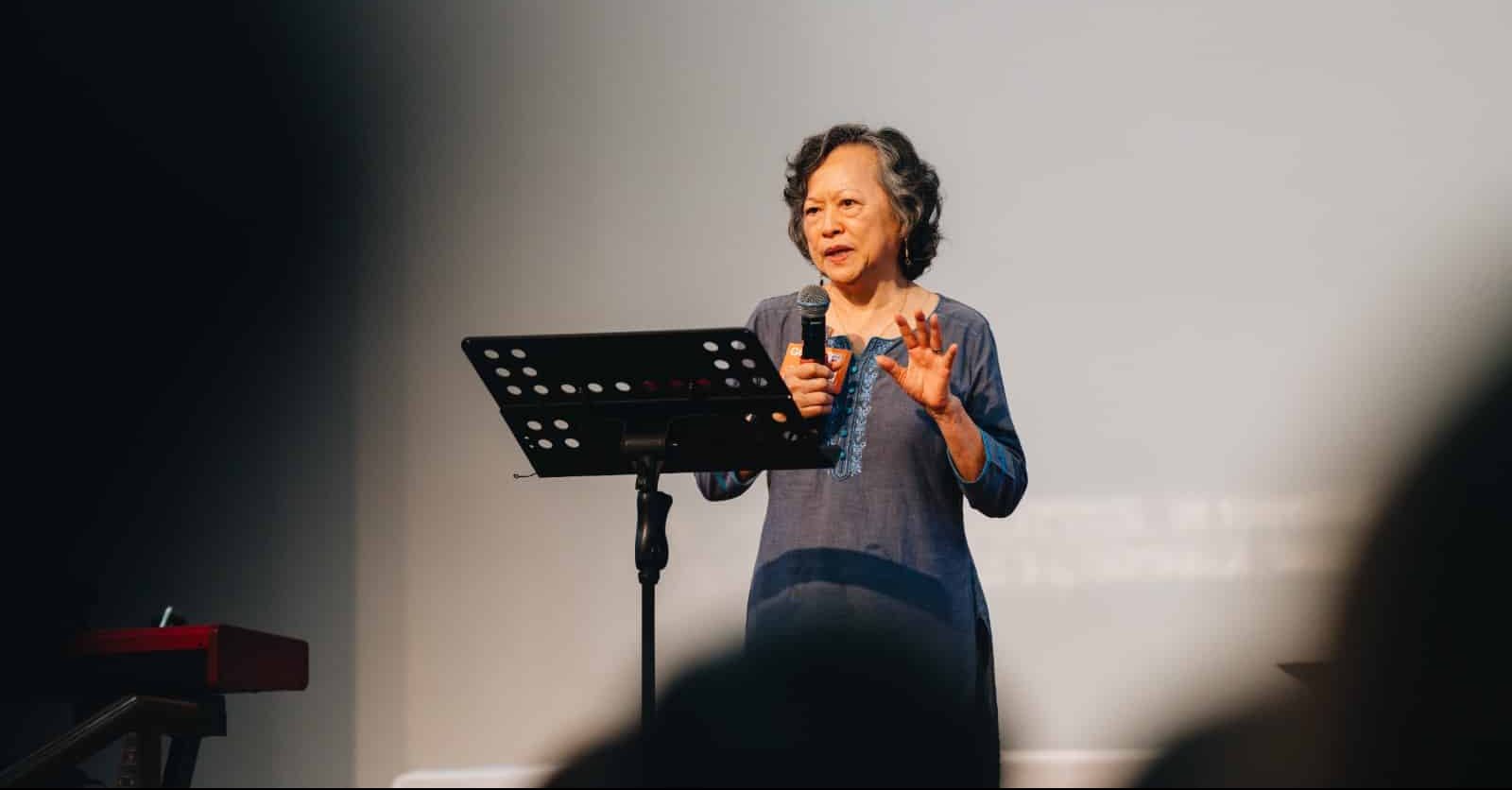“I would have lost a part of my soul if I had not come”: Despite difficulties, doctor couple remains faithful to God’s call to Nepal
by Christine Leow // August 2, 2024, 2:21 pm
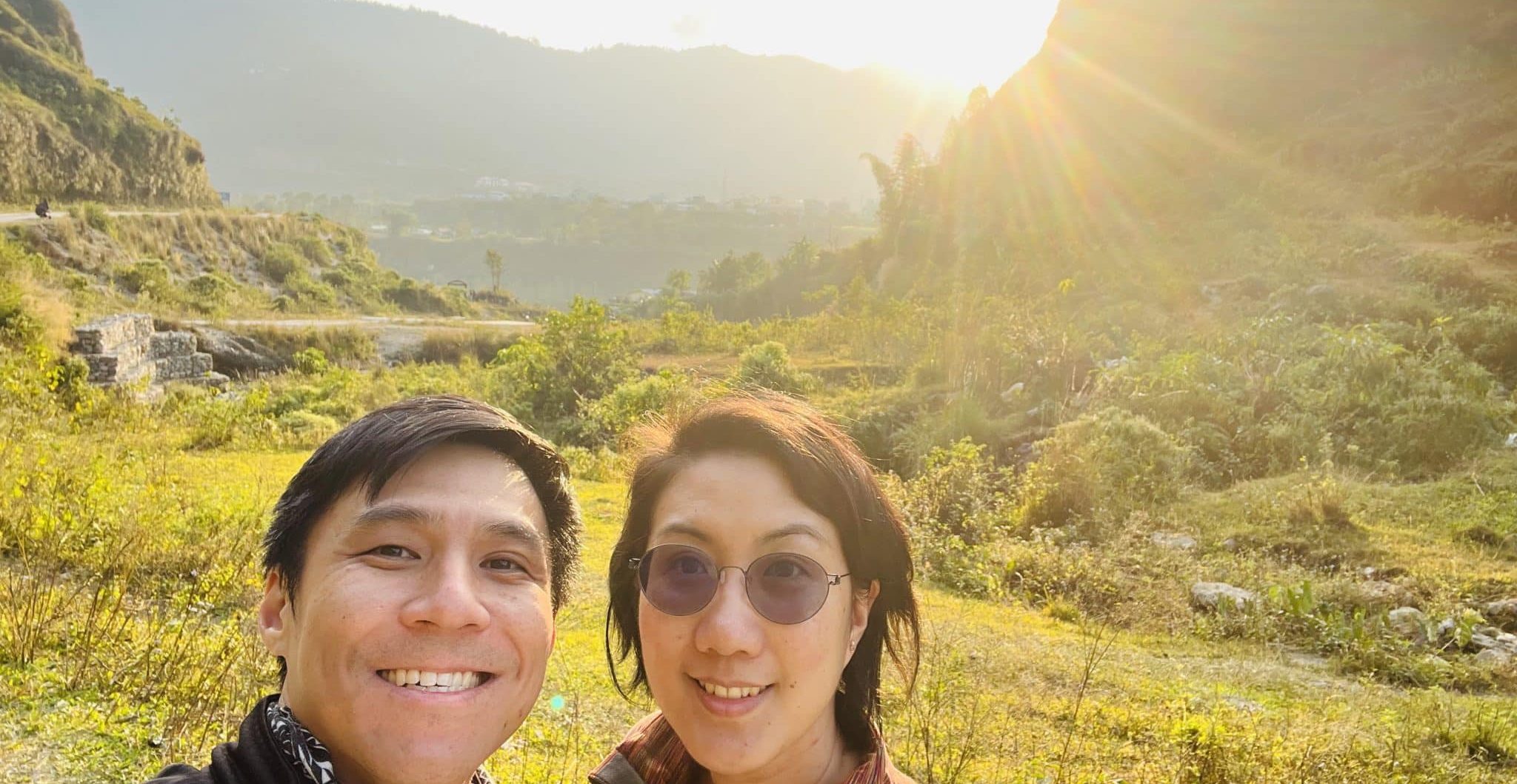
Dr Winston and Dr Shermin Chin were led by God through many signs and confirmations to Nepal, where they have worked with an NGO for the past four years. All photos courtesy of the Chins.
Six years ago, Dr Winston Chin and his wife Dr Shermin heard God call them to Nepal with great clarity .
On a holiday to Israel, God spoke to each of them repeatedly to leave their comfortable lives for “a difficult place”.
“It hasn’t turned out at all like we expected!”
Then a stranger confirmed their call with a verse for Winston to step out in faith (Matthew 14:28-29).
And once they resolved to leave Singapore, they encountered Nepal everywhere – from random conversations, to sightings of Nepali Gurkha soldiers at a reservoir and chancing on Nepali products at a store.
They knew then where they were meant to go.
It has been four years since they moved north. Salt&Light recently caught up with the couple to ask how work, ministry and life have been in the “land of mountains and valleys”.
“It hasn’t turned out at all like we expected!” was Winston’s reply.
When strength and will fail
The Chins, both 40, are volunteers at a Christian health and development non-governmental organisation (NGO) in Nepal that cares for people in the most remote and poorest of communities.
The organisation originally helped people with leprosy. Over time, it expanded to include those with disabilities or who are disadvantaged. Through its hospitals and clinics, it provides healthcare and development programmes to reduce poverty and promote social inclusion.
“I have been forced to my knees to ask God for His grace.”
In the last two years, Winston has moved from a strategic planning role to improving quality service and leadership development. Shermin has set up a new palliative care unit and is now starting on a system for research as well as looking at the quality of care for the organisation’s beneficiaries.
The work comes with challenges they did not expect.
Says Winston: “We come from Singapore where we are used to progress, results, seeing things happen. The culture here is very different. Things take a lot of time to happen and there is no guarantee of success.
“So a lot of the times, we find that our work doesn’t appear to bear visible fruit. We can feel quite frustrated that our efforts don’t seem to be getting anywhere.”
Agrees Shermin: “We used to take charge of things, organise people. Now we work through others instead, influencing them, supporting them to grow.”
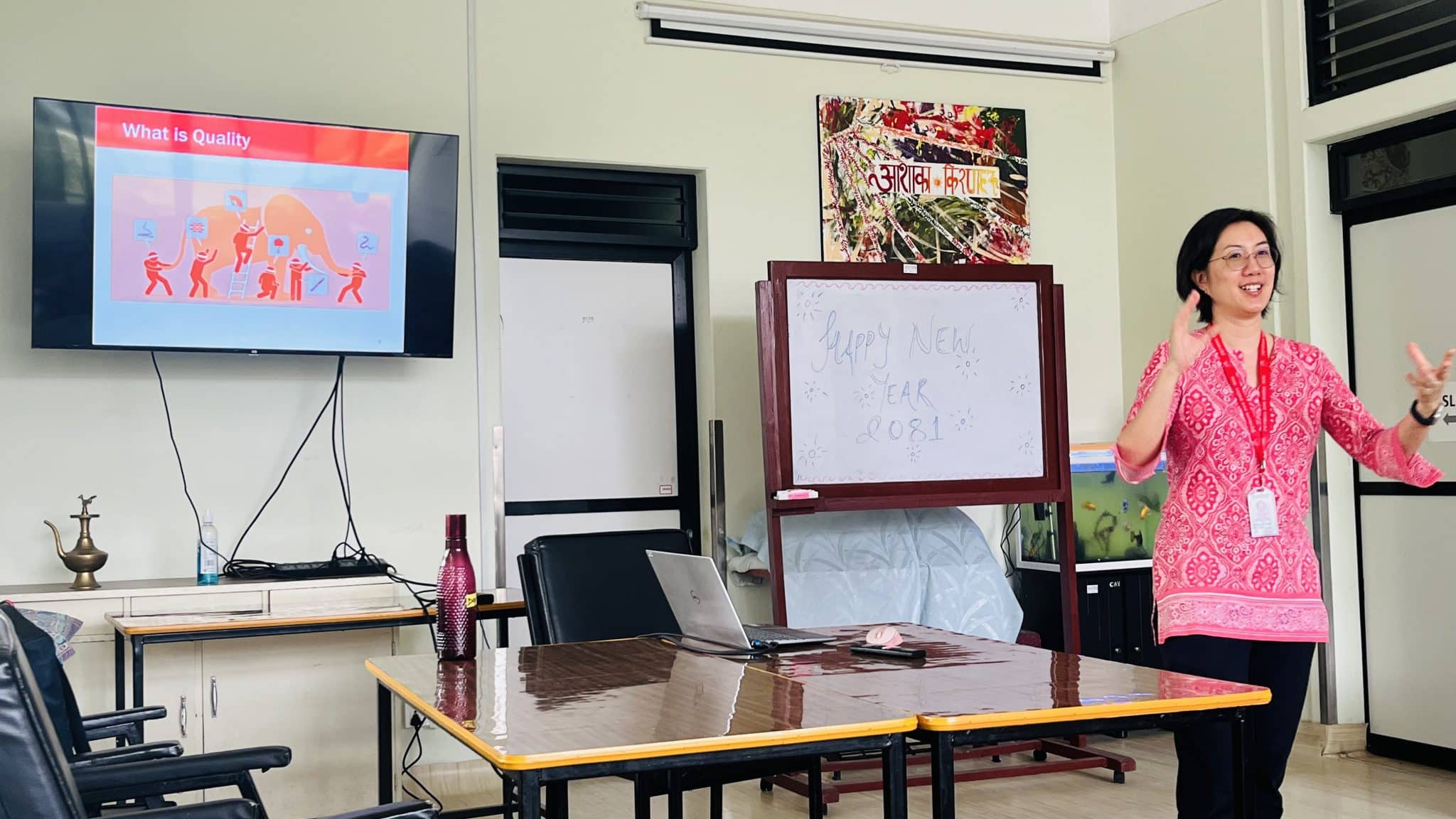
Shermin at a training session for hospital doctors in Nepal.
But through this, they learnt.
“When our own strength ends and our own will ends, God starts to work.”
“We expected God to do big things, achieve progress in our work. We realise we had to put those expectation aside and trust where God leads,” says Winston.
“More often than not, I have been forced to my knees to ask God for His grace and help when I have been helpless and clueless. In those times, I have seen God come through many, many times.”
Earlier in the year, Winston was so frustrated with roadblocks at work that he briefly contemplated returning to Singapore. But the very morning the thought crossed his mind, he had a meeting with his boss and “things started moving, doors opened that had been stuck for a really long time”.
“It’s still a long way to go but that was an object lesson. When our own strength ends and our own will ends, God starts to work and open doors that we cannot force open,” says Winston.
By a different measure
Another lesson they have learnt is to have God’s standard of success in mind. They admit to feeling “a pinch at some point” over their decision to work in a developing country.
“It is far more important to be faithful to what God has commanded, whatever station of life He leads you to.”
“We look at where our colleagues are in the medical field. They are consultants and senior consultants,” says Winston. “I ask myself: What would have happened if I had chosen differently?”
But the couple has come to realise that they “would have been much worse” if they had not obeyed.
“By God’s grace, I find myself having a different set of priorities. What kind of career I have, how influential I am, what work I can achieve – these things are in the background. These things are nice to have.
“But what does God want of me in my life? What is His purpose for me? I would have lost a part of my soul if I had not come because it was very clear what God was calling us to.
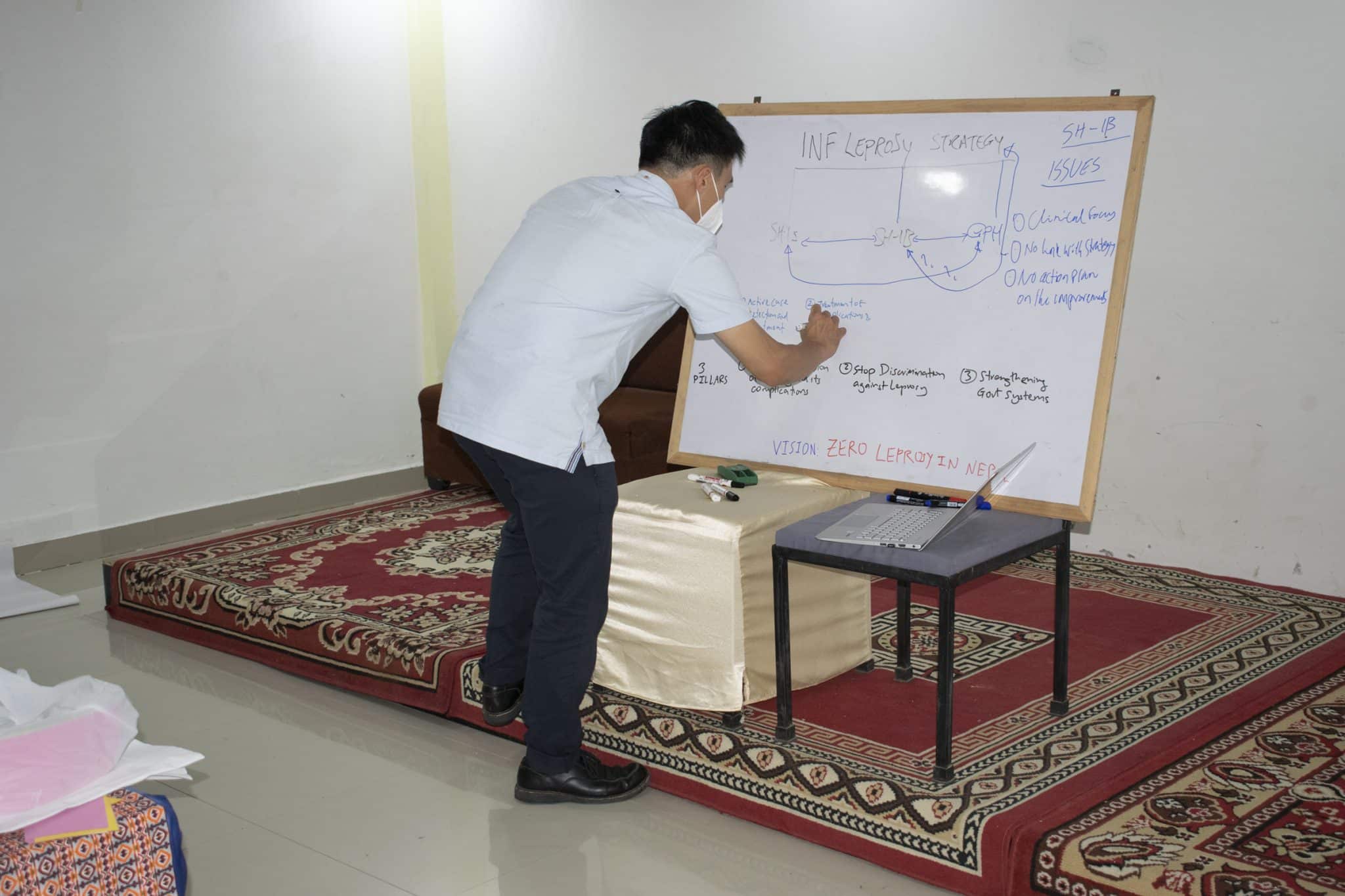
Winston facilitating a strategy discussion.
“What I learnt through this whole experience is that it is far more important to be faithful to what God has commanded, whatever station of life He leads you to, like what I learnt in my devotions this morning in Job 23:11-12.”
God of the people
That is not to say they have not experienced breakthroughs at work.
“We see one of our roles as being role models in our work ethics, how we carry ourselves, how we treat others,” says Shermin.
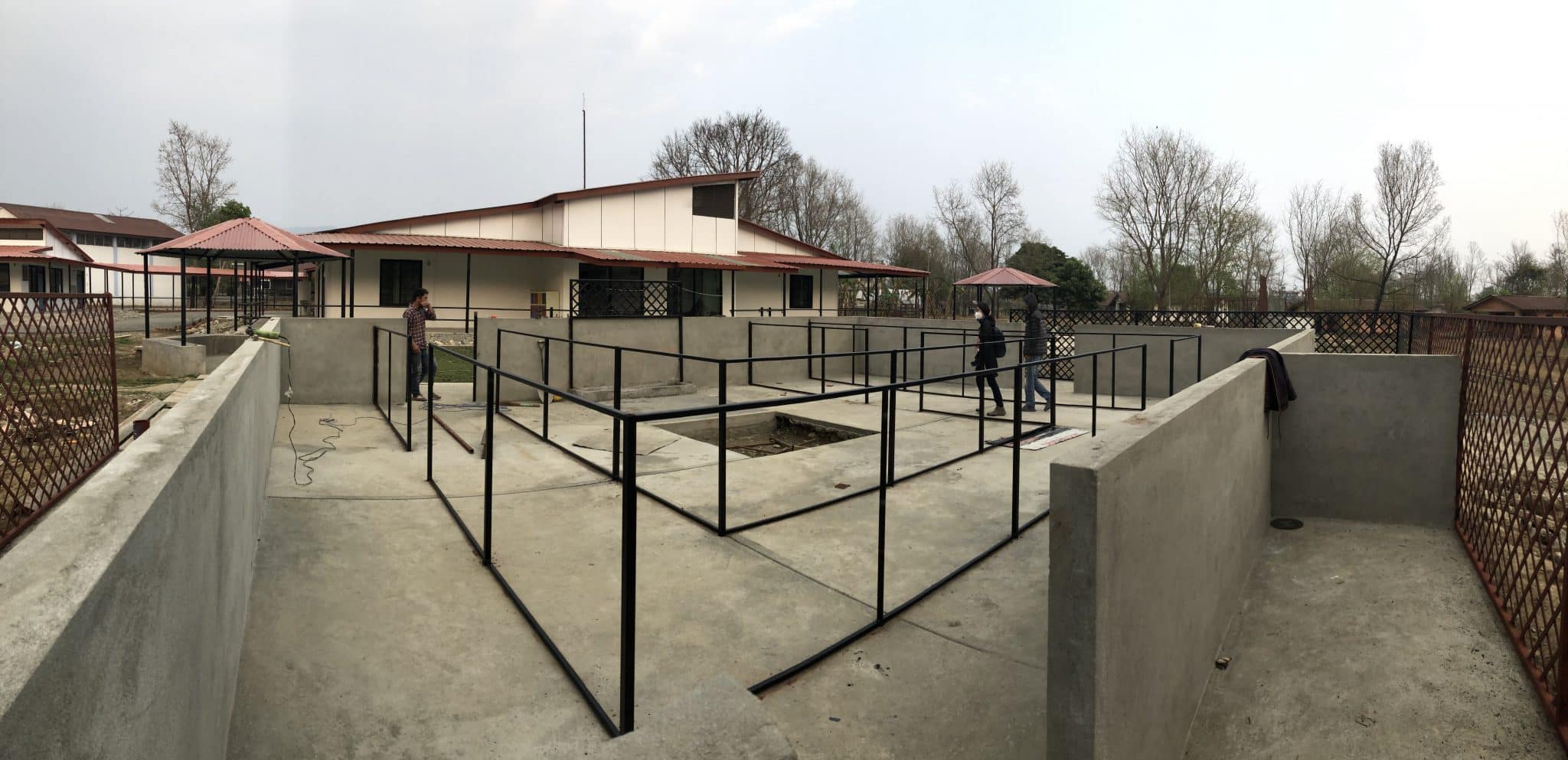
Shermin supervising the construction of a wheelchair-friendly children’s maze.
Shermin has been known to chat with the gardener, sitting on the ground with her to ask about her family.
“In this culture where there is a lot of hierarchy even though the caste system has been abolished, for a doctor to do this is counter cultural. That is one subtle way we can witness and show Christian love.
“It came to a point when I was away for a while and when the gardener saw me again, she came up to hug and kiss me and say, ‘I have not seen you for so long.’
“We try to make a difference one life at a time.”
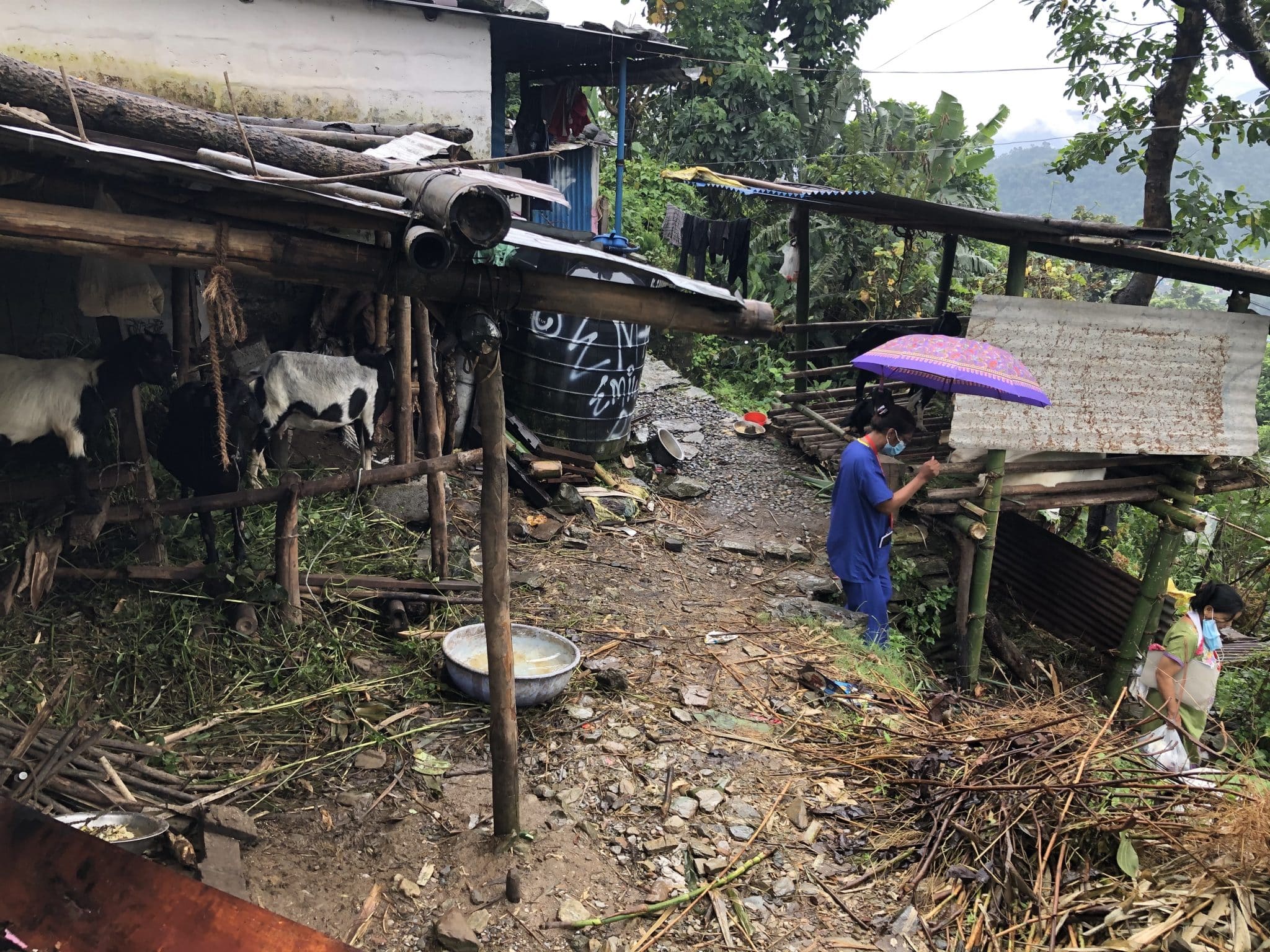
Part of their duties include doing medical home visits in the community.
Shermin shares another story.
There was a British expatriate who had gone to Nepal to be a missionary but ended up being a butterfly expert instead. Shermin went to visit him because he was on palliative care.
“We try to make a difference one life at a time.”
“His home was just a shack. We began to talk and somehow he started to open up about how he felt like he had failed in his calling because he was supposed to have been a missionary-teacher.
“But I told him that his work – showing God’s creation and advocating for the protection of Nature – is part of creation care which is also part of God’s work. I kind of gave him a different perspective.
“I told him, ‘Perhaps this is your calling but in a different form.’ That was quite a spiritual encounter.”
The talk brought much comfort to the man and it also gave the local nurse, who was with Shermin, the opportunity to see that palliative care goes beyond tending to the physical.
“After that, the nurse thanked me and said she learnt a lot.”
God of the everyday
God has also shown up in the “small things in life” for the Chins.
“I learnt to trust God.”
Where they live, the streets have neither pavement nor traffic lights; vehicles and buffaloes jostle for right of way. Things they have long taken for granted –uninterrupted electricity, clean water and clear air – are often in short supply. These riddle domestic life with several challenges that exert a “mental tax”.
“There are piles of dung on the road, so you cannot walk without paying attention,” says Shermin.
“Getting anywhere takes some effort. When I am here, I have higher levels of anxiety,” adds Winston.
“We have to override the habit of rinsing our mouths with tap water because the water is not that clean,” says Shermin.
“And we have to clean the water filter or it gets clogged,” quips Winston. “We feel exhausted quite often.”
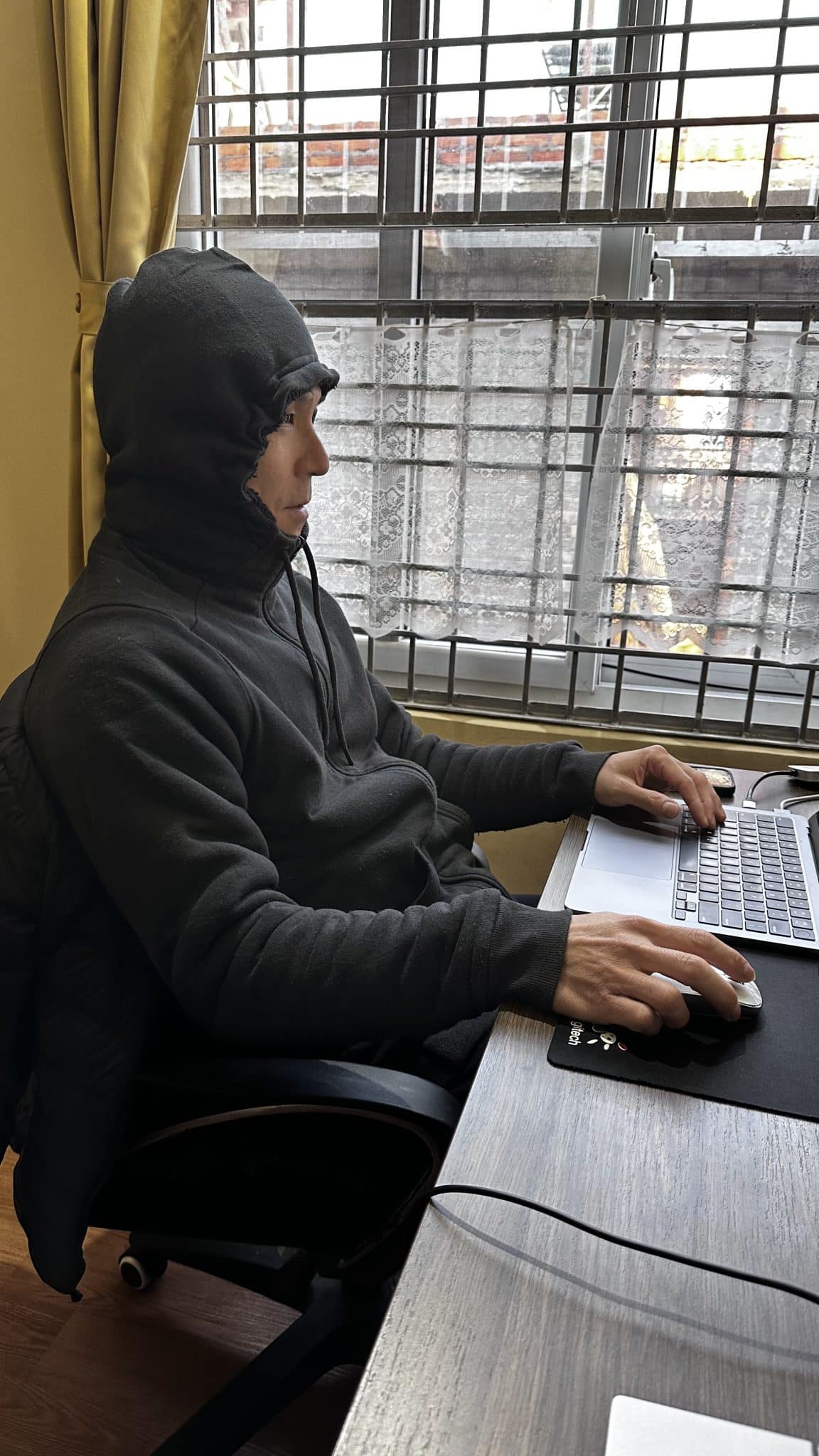
Winters are bitterly cold while summers scorching hot. Winston trying to stay warm while working from home in the chilly seasons.
As so many things are outside of their control, the Chins have learnt to “trust and surrender”. Every time they do, they have seen God at work.
Not long after they first arrived in Nepal, Covid broke out worldwide. With the border between India and Nepal shut, there was a shortage of daily necessities that used to come from India.
“We had just arrived, so we didn’t know anyone. One day, Winston went to buy vegetables. He came back empty-handed,” recalls Shermin.
Attempts to order from the local supermarket came to naught because vehicles were not allowed on the road. As they were about to give up hope, someone turned up at their door.
“He was a stranger and he had a whole big bag of vegetables,” Shermin says, still in wonder.
The Chins were housesitting and the man was a friend of the family who lived in that house. The man did not know that the family had returned to their home country because of the pandemic.
“He gave us so much that we shared it with our landlady. This is just one example of how God provided for us,” says Shermin.
“Father, if it is Your will for us to be here long-term, please have mercy on me!”
On another occasion, there was a power outage that lasted through the night. By morning, their backup battery was depleted.
“I was preparing to go to work. If the electricity came back while I was gone, I would not know how long the fridge had been without power. Then I wouldn’t know if the food inside was safe for consumption.
“I was praying, ‘Would You please bring back the electricity?’”
She waited an hour, then another and another. Still, the power was not restored. By nine that morning, Shermin had to leave for work. Desperate, she prayed again. Just as she was about to step outside of the house, power was restored. In all, they were without electricity for 19 hours.
“Through things like that, I learnt to trust God. I wouldn’t have had to learn these lessons in Singapore because so many things can be dealt with and are within our control.
“I have had to come to a place of total desperation … really nothing I can do.”
That need to rely on God was never more personal than when Shermin went for a recce trip in Nepal before she and Winston took up the volunteer positions.
“I have always been very prone to motion sickness, even on the smooth roads in Singapore.
“During our recce trip in 2019, we took a notoriously winding road in Nepal with hundreds of bends, and I was feeling awful despite having taken medication.
“In desperation, I asked God, ‘Father, if it is Your will for us to be here long-term, please have mercy on me!’”
She has not experienced any motion sickness since that prayer.
Committed to stay, ready to go
The Chins’ contract ends in the first quarter of 2026. In the meantime, they are working and expanding their ministries. Most recently, they have been writing songs together and recording them in their home.
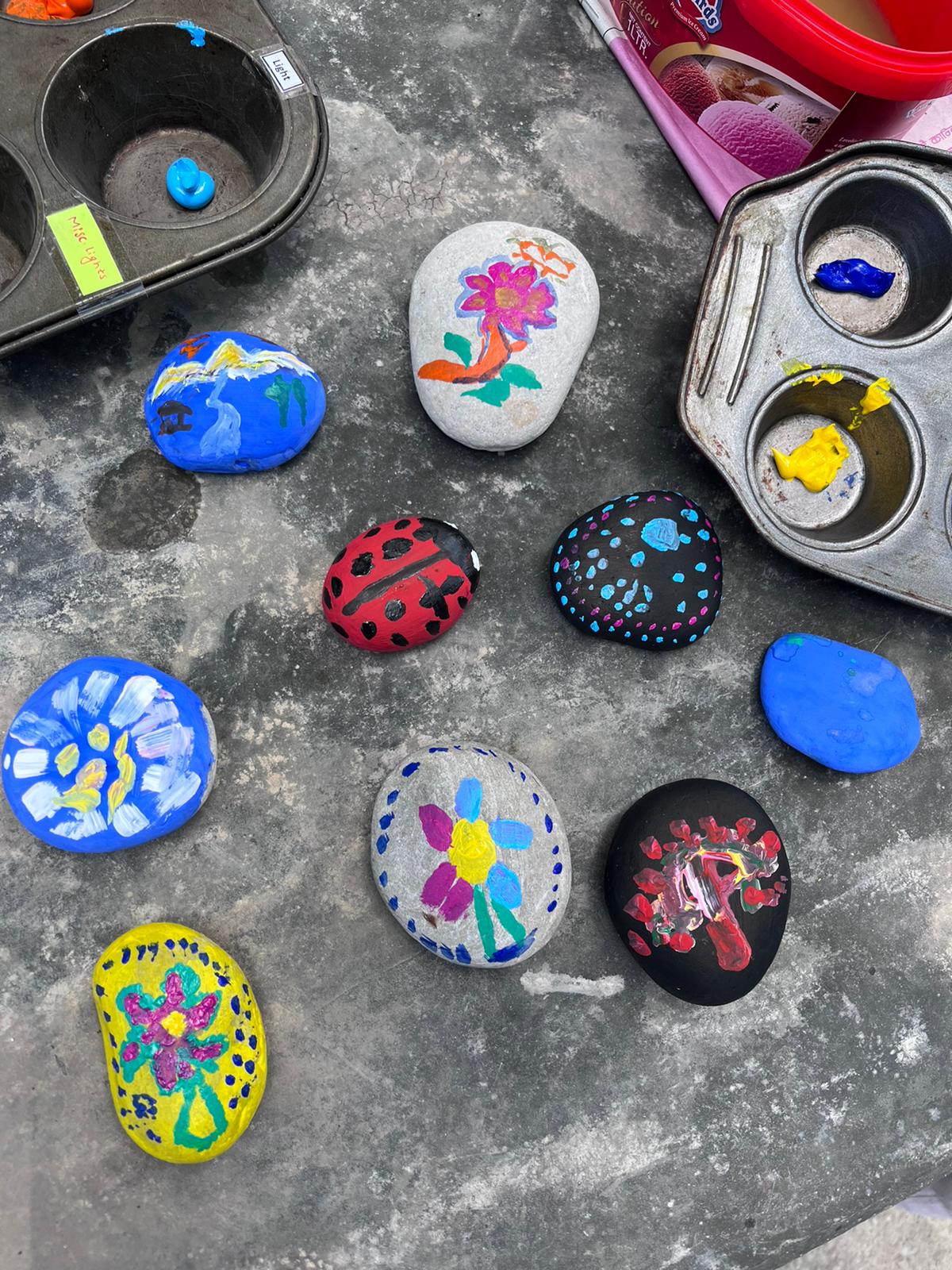
A rock painting session that Shermin conducted for palliative care patients.
“One of my more encouraging moments was writing a song in English that I translated into Nepali called Worthy.
“Translation is tricky because the cadence sometimes doesn’t match but this time it worked out fine. Some people say it sounds a bit Nepali,” says Winston.
Shermin also got herself certified as a Christian life coach.
“It has been challenging but we have grown a lot spiritually and personally.”
“I was already doing coaching within the workplace setting as well as outside the workplace, too, supporting expatriates. It was God who prompted me to search online for Christian life coaching.
“God has given me the ability to empathise and discern meaning in what people say and don’t say, and to allow the Holy Spirit to work in the conversation. Now I’m praying for opportunities for God to use this.”
While they are prepared to leave because daily life in Nepal can take a toll – “If you ask me to leave Nepal for good, I would happily pack my bags,” quips Shermin – they will stay until God tells them to go.
“We are at the stage where we are praying and waiting on God to lead,” says Winston.
“It has been challenging but we have grown a lot spiritually and personally. We have experienced things that are unique.”
RELATED STORIES:
Novel Coronavirus: China’s pastors go digital to spur flock on to faith and prayer
Novel Coronavirus: China’s pastors go digital to spur flock on to faith and prayer
“We need to change the whole way we do missions”: OM’s Global South Initiative director
We are an independent, non-profit organisation that relies on the generosity of our readers, such as yourself, to continue serving the kingdom. Every dollar donated goes directly back into our editorial coverage.
Would you consider partnering with us in our kingdom work by supporting us financially, either as a one-off donation, or a recurring pledge?
Support Salt&Light